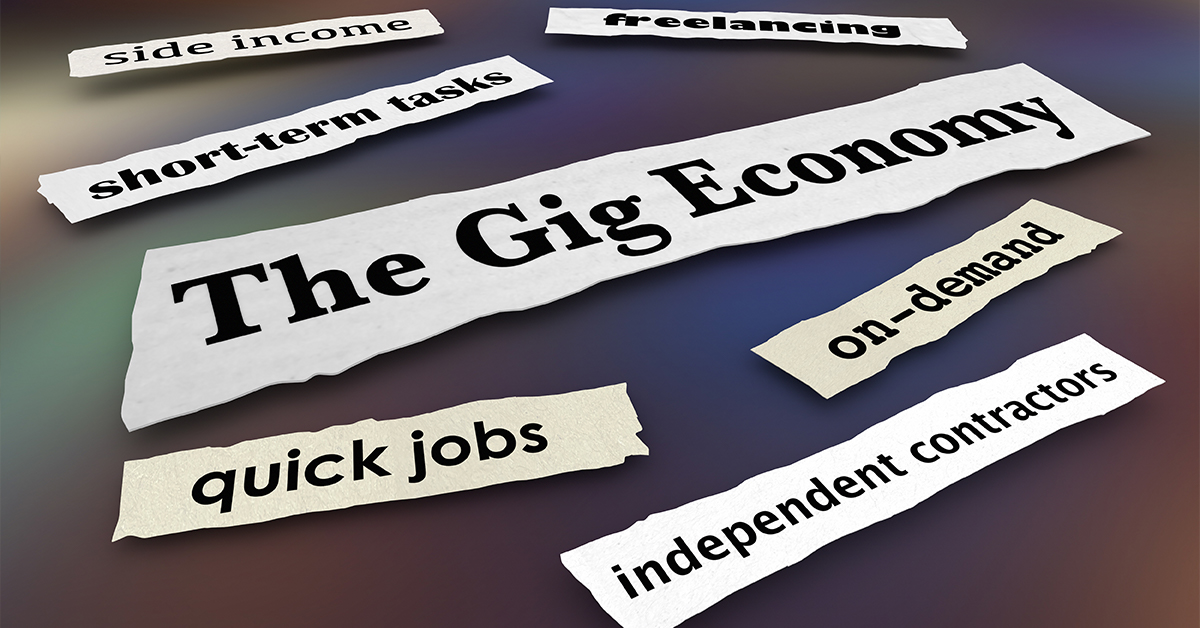By Emma Tunn
–
At first glance, you might assume the friendly Uber driver taking you to the airport or the ‘Airtasker guru’ fixing your TV is an employee. However, a recent Fair Work Ombudsman investigation into Uber drivers has determined the relationship between Uber and its drivers is not one of employer and employee, but rather an independent contractor situation.
The ‘gig’ or share economy is becoming big business in Australia, with more and more people taking up secondary employment/side gigs to make a bit of extra money to save for that house or overseas holiday or just for a lifestyle change.
So how can you tell whether someone you have engaged is an employee or whether they are an independent contractor? Does being engaged under a contract for services via an online platform or app change someone’s rights?
Employees vs Contractors
The courts have considered this discrepancy in a number of cases over the years. What has been found is it really boils down to how much control someone has over their work.
A worker is more likely to be considered legally an employee if:
- They are required to wear a uniform;
- They receive regular wages or a salary from which PAYG tax is withheld an employer;
- There is an ongoing expectation of work with regular or set hours. This includes those who are casual workers whose hours may vary;
- An employer directs and controls how the worker performs their work;
- An employer provides the worker with the tools, equipment, training and a place for them to do their job (e.g. a dedicated office/workplace and supplies, PPE, induction and job-specific training;
- An employer is ultimately responsible for the worker’s actions (within reason) and the costs of rectifying any mistakes made make on the job, i.e. vicarious liability.
Employees are also entitled to a number of protections under the Fair Work Act, including protection against unfair dismissal and provision of minimum entitlements under the National Employment Standards, including access to leave entitlements and redundancy pay.
Employees are also able to access workers’ compensation payments if they sustain an injury at work, subject to other conditions being met under the Workers’ Compensation and Rehabilitation Act 2003 (Qld).
On the other hand, independent contractors have far more control over the work they do in that they:
- Can decide what hours they want to work;
- Pay their own tax and GST to the ATO;
- Do not receive a regular wage, rather they are paid on a results basis for a particular project/task/service they are engaged for (e.g. a consultant, personal trainer, private investigator);
- Provide all or most of the tools required to complete the work and do not receive any allowance for doing so;
- Operate their own business independently and can accept or refuse additional work.
Independent contractors also have their own ABN. However, just because someone has an ABN does not automatically make them an independent contractor.
Furthermore, independent contractors are free to subcontract or delegate their work to someone else. This is particularly the case in industries such as building and construction where a head contractor will subcontract to various trades for the completion of a large-scale project.
In terms of a workplace injury, independent contractors may not be entitled to claim worker’s compensation and are therefore required to obtain their own income protection and liability insurance.
Recent Decisions
Returning to our Uber driver, the Fair Work Commission found in Pallage v Rasier Pacific Pty Ltd [2018] FWC 2579 that Mr Pallage was not an employee, but rather an independent contractor because:
- He could choose when to log on/off from the Uber App;
- He had control over the hours and locations he wanted to work;
- He could accept or refuse trip requests;
- He supplied his own ‘tools’, i.e. his vehicle and mobile phone from which to run the Uber App;
- He was paid based on the completion of tasks (trips) rather than being in receipt of a periodic wage or salary; and
- He was required to obtain an ABN and register for GST. There was no evidence of any PAYG tax being deducted by Rasier (the entity overseeing the service arrangement for Uber) to remit to the ATO;
- There was no prohibition on him carrying out work for others.
The situation is a little different from Uber’s food delivery rival Foodora, who are no longer operating in Australia. In Klooger v Foodora Australia Pty Ltd [2018] FWC 6836, Mr Klooger, who had worked for Foodora for a number of years, was found to be an employee of Foodora because:
- He was required to wear a Foodora-branded uniform and ride a bicycle with the company’s branding to carry out his deliveries;
- He was paid by way of invoices submitted to him for approval by Foodora;
- He was directed by Foodora to work in a specific geographical area;
- The terms of his contract with Foodora were very similar to that of an employment contract.
In that case, Foodora was ordered to pay $15,000 compensation to Mr Klooger for unfair dismissal because he was found to be an employee.
Looking Ahead
Neither of these two decisions provides any definitive answer as to whether someone will be classified as an employee or an independent contractor. Ultimately, whether a person is considered an employee or a contractor will be decided on the facts of the case and whether it satisfies the criteria identified above, although that is by no means an exhaustive list.
Time will tell as to whether the creation of this new industry will see further legislation created to clarify the issue and determine whether the intermediary company such as Uber and Airtasker is an employer or simply something best described as a principal contractor.
If you engage employees or independent contractors and have concerns about your unique situation, our Workplace Law team are available to assist. You can call our office on (07) 3211 2233 or enquire using the form below.






